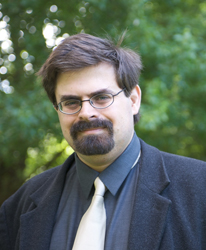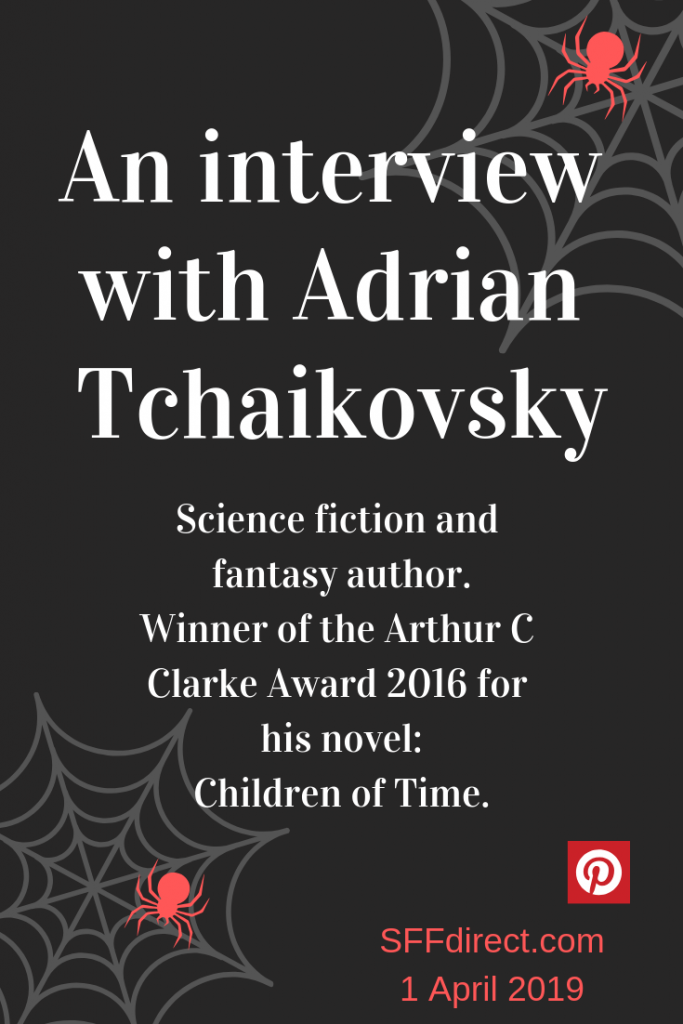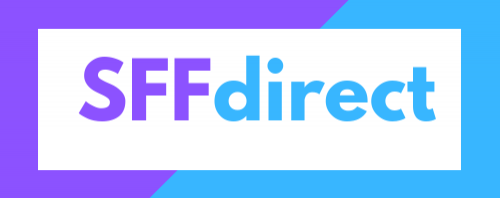
SFFdirect met Adrian Tchaikovsky for interview in Leeds on Monday 1st April to discuss his latest projects, writing and the science fiction and fantasy genre. The article that follows is unmissable for all readers and writers of SFF. You can visit his website at http://shadowsoftheapt.com/ .
Adrian has an extensive publication history, which can be viewed on his author page of the Internet Speculative Fiction Database. Click this link.
Adrian is tall and physically imposing but he is softly spoken and extremely polite and attentive. He sees himself primarily as a novelist but he has published many novellas and also some short stories. These days he is probably most well-known for his science fiction novel Children of Time, which won the Arthur C Clarke Award in 2016, but prior to that he wrote a swathe of fantasy titles, starting with his Shadows of the Apt series, his debut novel being Empire in Black and Gold, published in 2008.
Latest releases and Forthcoming titles
Adrian’s latest releases are:
- The Expert System’s Brother, a science fiction novella
- The Hyena and the Hawk, the third in the ‘Echoes of the Fall’ trilogy
- and The Scent of Tears, an anthology set in the Apt universe.
He has a number of titles coming out soon:
- Cage of Souls is a standalone science fiction novel due out mid April 2019. It is set on a dying far-future Earth.
- Children of Ruin is the sequel to Children of Time. Human and spiders are now allies and they follow a signal to a new world, which brings danger and a new battle for survival. It is due out in May 2019.
- Walking to Aldebaran is a novella also due out in May 2019. An astronaut investigates an object found around the orbit of Pluto.
- The Brain Garden is a novel which is due out April 2020, having been submitted a month ago. It is a standalone science fiction work.
- Made Things is a fantasy novella due out later in 2019.
You can see from the above how prolific Adrian is as an author. In the article that follows, I have paraphrased Adrian’s answers.
What are you working on currently?
My current Work in Progress is a novel which will be the first of a series. It is space opera in which faster-than-light travel (FTL) is possible but there are rules on its use. In this respect I found it similar to writing a magic system in a fantasy novel, because you have to make sure you apply the rules consistently.
The Children of Time books lean towards being more hard science fiction and FTL is not possible. Consequently, this provides a different challenge. There is more travelling between planets in Children of Ruin than in the first book and factoring in the travel time became onerous at times.
Why do you write science fiction and fantasy?
I have always loved the genre. When I was a child I read mostly science fiction but at the age of 17 or 18, I started reading the Dragonlance chronicles. These ignited my passion for fantasy and also for writing because not only did I enjoy them, but I thought I could write them too. I started writing novellas and had some short fiction published in Xenos in the early 90s, but my main focus was on writing novels.
Describe the road to publishing your first novel
I started submitting novels to agents and publishers at the age of 20. For the next fifteen years, I’d write a book a year, get the Writers and Artists Yearbook and identify agents and publishers in the SFF genre, and submit sample chapters and a synopsis. I was only asked for the full manuscript (MS) twice. On the second occasion, after reading the full MS, the agent asked me to come in for a meeting. This was two weeks before my 35th birthday.
After being taken on by my agent, it took another year to secure a publisher. I signed with Pan MacMillan. The decisive factor that persuaded them to take me on was that I had four novels ready to go. In the SFF genre, publishers like series.
Fifteen years to obtain an agent is a long time. Did you ever feel like giving up?
Yes, in fact I’d got to the point where I said that if nothing happened by my 35th birthday I would call it a day. It never came to that, fortunately, but it was a close call.
For the benefit of aspiring writers, describe the author-agent relationship
There are many kinds of author-agent relationship. For me, I get on well with my agent and I find this important. I bounce ideas for new books off him and discuss many things around writing. I spend much more time in contact with my agent than I do the publisher. The agent is the go-between between you and the publisher.
When I am doing edits with the publisher then we are in direct contact but that is by email and nowadays publishers tend to outsource editing. They also often outsource publicity work too.
Your main publisher is Tor under Pan MacMillan, but you have work published with other publishers, for example Walking to Aldebaran is with Solaris. How did this come about?
Because I’m very prolific, I produce more work than one publisher would generally deal with. Consequently, about 3 years ago, my agent negotiated terms which allow me to use other publishers for some work. I understand that this is not the norm but in my case it has worked okay.
How did you learn the craft of writing?
I learnt to write by reading and writing. Style is the problematic thing – you have to develop it yourself. Unfortunately in the SFF genre, beautiful writing is the exception rather than the rule. It is a genre of ideas, so the emphasis is often there instead.
I’ve never read books on writing, though, nor attended writing courses. I’ve never been part of a writers group or critique group either. Perhaps my road to publication would have been quicker if I had. I recommend that new writers do join a writing community.
Do you read much?
Yes. Almost all my reading is in the SFF genre, which is probably a flaw as you can learn lots by reading other genres.
Where do you get your ideas?
I have a keen interest in entomology and this has shaped much of my work. I’ve never struggled for ideas. I have more ideas than I know what to do with. And I tend to know instinctively what legs an idea has, whether it can sustain a novel for example.
You attend conventions. Did you always do this?
I only started attending conventions after I became published. At first I went to a few small ones, and the first large one I attended was the 2012 Eastercon, and I went because George R R Martin was the guest of honour. I managed to get onto a panel that he was on, which was great. I really enjoy conventions now but it was difficult at first because I’m not very adept at social situations. For writers, I’d recommend FantasyCon (run by the British Fantasy Society); it’s the most bookish one.
This year, the cons I am attending include Ytterbium (Eastercon) at Heathrow and WorldCon in Dublin.
I notice you use Twitter and Facebook. Are these important to you as an author?
I tend to use Twitter for professional purposes and Facebook for personal purposes. Social media is useful for authors as you can easily contact people. I am happy to chat to fans on social media too.
I keep meaning to start doing a newsletter on my website but I’m aware that I may be setting myself up for a lot of work which would take me away from writing, which is why I haven’t done so yet. Also, despite my success I still suffer from imposter syndrome and wonder why anyone would want to read it.
What is your writing process?
I am now a full time writer, having given up my day job as a lawyer in December 2018. Over the last 3-4 years I reduced my working hours and finally took the plunge, which was largely possible due to the success of Children of Time.
I tend to write in the mornings and late evenings, and usually come into Leeds centre during the day. I’m currently in the middle of a book and finding it a grind. The beginnings and endings are easy and fast to write but middles can be sluggish. I am driven to write though. I am unable to go more than a week without writing.
Do you believe in Writer’s Block?
Yes, although I rarely have it. The only time I get it is when I write myself into a corner, for example the plot requires a character to do something they wouldn’t do.
Do you always write what you want or do you sometimes adapt your writing to fit trends or market forces?
I would like to write 50% fantasy and 50% science fiction, but currently my science fiction is doing very well and there is a huge appetite for it. I understand this is contrary to the general climate in the genre. Consequently I am now predominantly writing science fiction, but that’s fine because I have so many ideas that I can keep going and write the science fiction I want to write.
What is the difference between writing SF and writing fantasy?
With SF, I’m conscientious about the science and this normally involves research. But with fantasy, it’s more about building the world and being internally consistent, for example with rules about magic.
Are you a big planner and outliner?
Yes, very much so. In particular, I always have a detailed chapter breakdown before I start a novel.
Do you have any reading recommendations?
Absolutely. I recommend the following authors: Emma Newman, Justina Robson, Sue Burke, Becky Chambers, Gareth Powell, Ann Leckie and NK Jemesin.
It is no coincidence that most of the people on this list are women. There is some excellent SFF being written by women these days, which is all to the good and the benefit of the genre, which has had a preponderance of white male writers for too long.
What is the future of SFF literature?
Science fiction and fantasy are frequently a mirror to what’s going on in the world. They say that people read fantasy when times are bad, and they read science fiction when times are good. Currently, fantasy is doing well so read into that what you may. However, hard SF has really taken off in the last few years because people are interested in space. They hear talk of colonising Mars, and there are private enterprises running space missions so it’s all real and current.
Is there still a place for classic heroic fantasy?
Yes. It never went away. There has been a lot of grimdark in recent years but the novels still contain heroism. The characters just have to work harder and the backdrop is darker, but the characters are still trying to do the right thing.
What are your views on the Fermi paradox?
I find it hard to accept that we are the only intelligent life in the universe, but there may be many civilisations who, for whatever reason, don’t get to the point of transmitting signals we can receive. Also, we may be looking for signals but we’re not looking very well. And we may not be able to communicate with alien life. After all, we struggle to communicate with species on our own planet – alien life is going to be even less like us.
Of course, mathematics is a common language and in Children of Time human and spider have that common ground. We also need to ask why haven’t we seen self-replicating machines? An alien civilisation could colonise galaxies fairly quickly with these so their absence might tell us something.
SFFdirect would like to thank Adrian Tchaikovsky and wishes him every success with his forthcoming titles.


